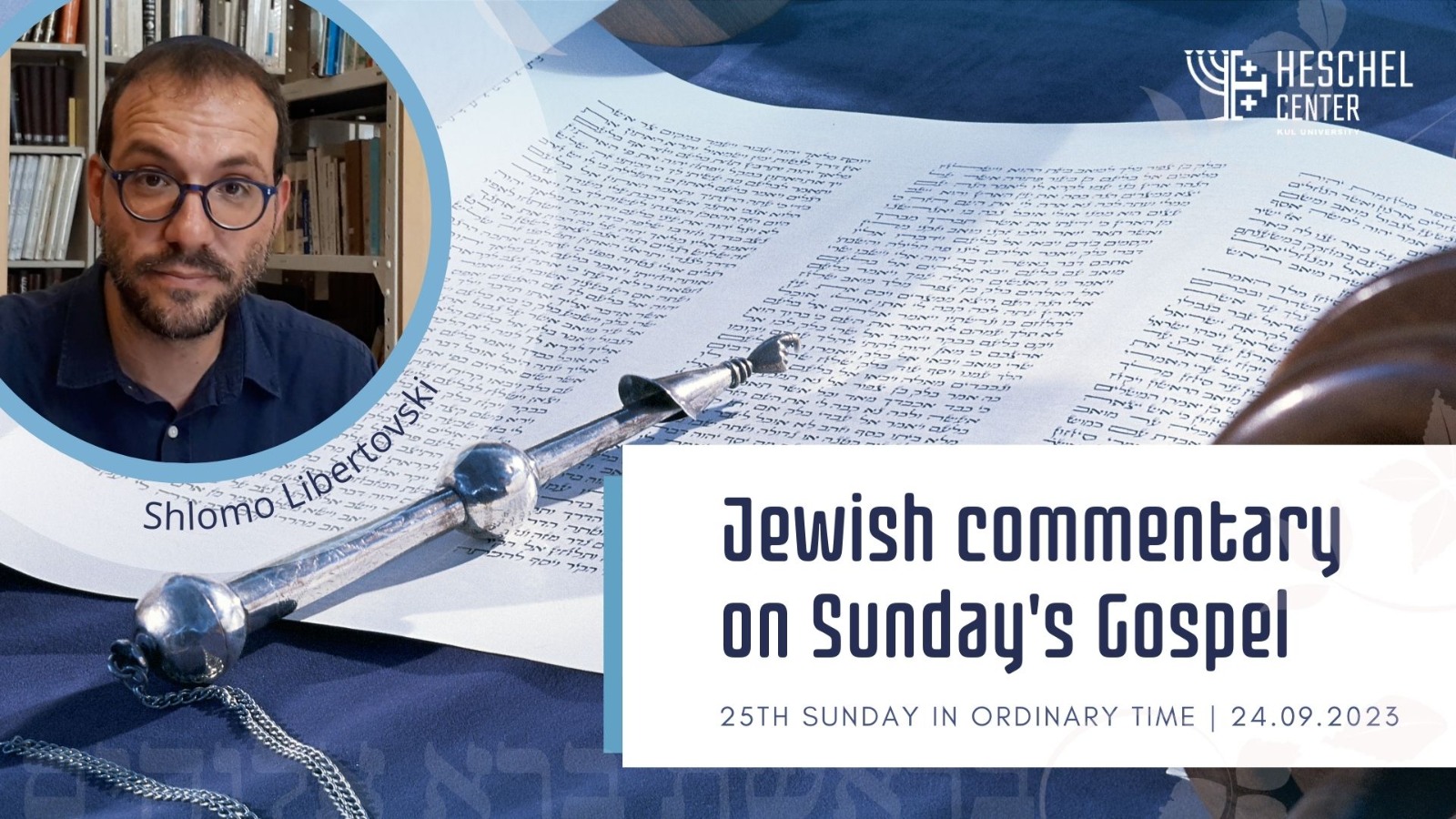Repentant sinners before the righteous – the Jewish sources of Jesus’ parable


Photo credit_KUL Heschel Center
The prophet Isaiah emphasizes God’s mercy for repentant sinners. According to the Babylonian Talmud, people who repentant, who abandoned sinful life and drew closer to God are in a more important position than the greatest of the righteous. In telling the paradoxical parable of the workers in the vineyard, Jesus drew on the Old Testament and Jewish tradition, says Shlomo Libertowski, a Torah lecturer at Beth Shemesh, in a commentary on the September 24 Gospel for the Catholic University of Lublin’s Heschel Center.
Jesus’ parable of the laborers in the vineyard, which we find in the Gospel according to Matthew, is one of the most paradoxical in Jesus’ teaching. Those who worked all day received the same wages as the “last hour” laborers. ” The parable speaks about the Creator of the world and the fact that he also accepts those who joined him at a later stage and started worshiping him after being away from him for a long time,” Shlomo Libertowski comments, pointing to the vineyard’s owner as a symbol of God.
The key to understanding the parable is the phrase: “For behold, the last shall be first, and the first shall be last” (Matthew 20:16). ” we can see the presence of the Jewish sources of the Bible on which the Gospels are based. The later Jewish writings also continue in the same thought,” notes the Torah lecturer at Beth Shemesh.
The prophet Isaiah described the image of penitents – returning to the Lord (baalei tshuva – בעלי תשובה): “Let him turn to the LORD for mercy; to our God, who is generous in forgiving. For my thoughts are not your thoughts, nor are your ways my ways, says the LORD ” (Is. 55:7-8). As Libertowski explains, “This means that even the biggest criminal is entitled to forgiveness, if only he will abandon his wicked ways and come closer to God.”
A similar message can also be found in the so-called Babylonian Talmud. Rabbi Abbahu said the places occupied by penitents cannot be occupied by the perfect righteous, as it is said: ” Peace, peace to him that is far off and to him that is near”. Libertovsky explains that ” people who repent, who abandoned sinful life and drew closer to God are in a more important position than the greatest of the righteous!”.
“Those ideas are very close to the parable of the workers and the words of the owner of the vineyard that the last will become the first,” concluded Shlomo Libertowski in his commentary on Sunday’s Gospel.
The entire commentary is available on the website of the Heschel Center of the Catholic University of Lublin:
Limit of forgiveness or forgiveness without limit? >>>
Forgiveness which may do harm to the victim and the abuser >>>
The life of St. Peter – love that overcame fear >>>
Ties bound on earth and in heaven >>>
Jesus points to pagan woman as example of faith >>>
The calming of the storm on the lake in the eyes of the first Jewish listeners >>>
The mountain of transfiguration – a place of my being with God >>>
Sometimes you have to go on a long journey to find the treasure hidden within yourself >>>
Revelation reserved for the foolish, or the provocation of Jesus >>>
Jesus on the Jewish value of spiritual service to the righteous >>>
The New Torah and Jesus as the new Moses and the new Joshua >>>
The day is short, the work is plentiful, and the people are insolent, and the reward is great >>>
Eucharist – New Manna, God present here and now >>>
Hebrew Commenary to the Gospel: Three Names of One God >>>
The Pentateuch’s prophets and Moses predicted the outpouring of the Holy Spirit >>>
The end which is a new beginning – about an ever-present God >>>
Paraclete – three meanings of the Greek word hidden in the Old Testament >>>
The first covenant of God with the Jews is still valid >>>
Selective listening to Scripture – the mistake of the disciples at Emmaus >>>
God’s mercy inscribed on the pages of the Old Testament >>>
After his resurrection, why did Jesus first appear to women? >>>
Passover – the celebration of freedom and faith >>>
The more we know about Passover, the more we can understand the Last Supper >>>
Why did Jesus let Lazarus die? >>>
Who sinned, the blind man or his parents? >>>
How did the seventh man change the life of the Samaritan woman? >>>
Who was transfigured on Mount Tabor – the disciples or Jesus? >>>
The Desert – A Blessing or a Curse? >>>
KUL Heschel Center: Misunderstandings over the „eye for an eye” principle >>>
Law, Prophets, iota – we need to examine the context to understand the meaning of Jesus’ words >>>
Heschel Center KUL: What do salt, light and the city on a mountain mean to us? >>>
Heschel Center KUL: Why did the disciples, becoming „fishers of men,” abandon their nets? >>>
Hebrew Commentary to the Sunday Gospel excerpt – 2nd Sunday in Ordinary Time; Year A >>>
Jewish Commentary on the Gospel >>>
Hebrew commentary on the first Sunday of the New Year Gospel >>>
Jewish commentary on the Christmas Gospel >>>
Hebrew commentary on the Gospel for the Fourth Sunday of Advent >>>



Dodaj komentarz